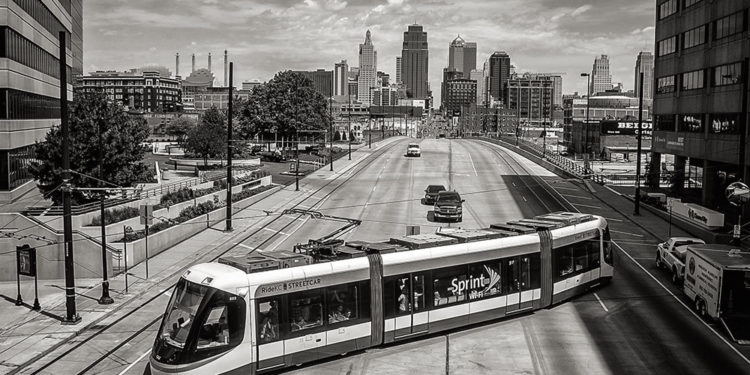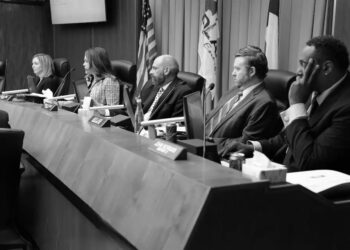Rep. Ayanna Pressley (D-Mass.) told a progressive audience at Howard University on February 7 that, “Public transit should be free.” This is just the latest call for free transit; the issue has been bubbling up around the country in the past few months, started in large part by some misreporting of events in Kansas City, Missouri.
In December, city leaders instructed the city manager to work with transit officials on a policy that would “include a funding request in the next fiscal year budget to make fixed route public transportation fare free within the City.” The city’s next fiscal year does not begin until May 1, ad the just-released budget proposal does not include enough money for fare-free buses.
That was picked up around the country and misreported as a done deal. Vox seems to have been first, reporting that Kansas City, “will be the first major US city to offer free bus service to residents by 2020.” Citing Vox, The New York Times reported that Kansas City, “declared that their buses would become fare-free this year.” A Worcester, Massachusetts magazine took it one step further and reported the matter in the past tense, claiming that, “Kansas City, Missouri, got rid of bus fares earlier this month.” Not to be outdone, NBC Boston aired a report that seemed to claim that Kansas City’s buses have been free for two years.
Like cities around the country, Kansas City is wrestling with how to pay for fare-free buses, with cost estimates ranging from $8 to $12 million annually. No one is sure because the city hasn’t analyzed the implications of going fare-free. The area transit authority, KCATA, has offered free bus passes to veterans and students in the recent past, and claims that over the past few years 23 percent of riders have paid no fare.
Underscoring the uncertainty, in an interview with a local newspaper, KCATA CEO Robert “Robbie” Makinen flippantly offered, “Just because nobody else is doing it, that’s not a reason for us not to do it. What’s wrong with trying it? What’s the worst thing that happens? It doesn’t work, and Robbie gets fired.”
Fare free buses are not without risk. Other cities have tried it—and abandoned it.
A 2002 study authored by Jennifer Perone and Joel Volinski of the Center for Urban Transportation Research concluded:
Based upon the findings of this synthesis, it is concluded that a fare-free policy might be appropriate for smaller transit systems in certain communities, but is ill-advised for larger transit systems in major urban areas because experience shows that in larger systems, a tremendous amount of criminal activity, as well as a sharp increase in ridership, caused higher maintenance costs, labor costs, and operational costs and drove away existing riders.
In a 2012 book, “Implementation and Outcomes of Fare-Free Transit Systems,” Volinski details a fare-free pilot program in Austin, Texas. Ridership increased by as much as 70 percent, but there were issues of, “overcrowded buses, disruptive passengers, and unhappy bus operators.” The program was discontinued. Denver tried a similar fare-free program but saw the same results and discontinued it.
Transit passengers say lower fares are not a priority. A 2019 survey of 1,700 riders around the country conducted by TransitCenter found, “What we heard is that most low-income bus riders rate lowering fares as less important than improving the quality of the service.”
Unfortunately, a “draft mini-report” on fare free buses by the University of Missouri-Kansas City only made matters worse; making bold predictions by omitting any measure the costs of such a policy. Local leaders often fall prey to so-called economic impact analyses of municipal policy, claiming that spending public funds on transit will drive jobs and private investment. Those studies often fail to not only consider spending offsets, but claim as an impact investments that would likely have happened anyway or happened for other reasons entirely. The realities of municipal transit is that it often increases congestion and requires more energy, not less.
One other impact not often considered is that going fare free may hinder a transit agency from improving the quality of service, not just by stripping them of funds, but by stripping them of information. Dr. Byron Schlomach at Oklahoma State University points out that, “Pricing plays an important role even in 90 percent subsidized, publicly-owned enterprises like bus transit. It can provide information for where and when the service is most highly valued and serve as an indicator for where resources should be allocated.”
How would any transit agency collect information on the popularity of routes if not through the farebox? Perhaps it could install people-counting sensors on every bus entrance, but that’s an additional expense not often considered in this debate.
Rep. Pressley and local leaders around the country seems to be jumping into this before it has given the issue any serious consideration. And while city leaders may mean well, public policy requires more than good intentions. Our national experience with large scale fare-free transit is not promising and what we know about the specific plans to offer fare-free bus service do not instill confidence.
National and local leaders owe taxpayers and passengers more consideration of the benefits and costs of such policies before calling for such dramatic changes.









